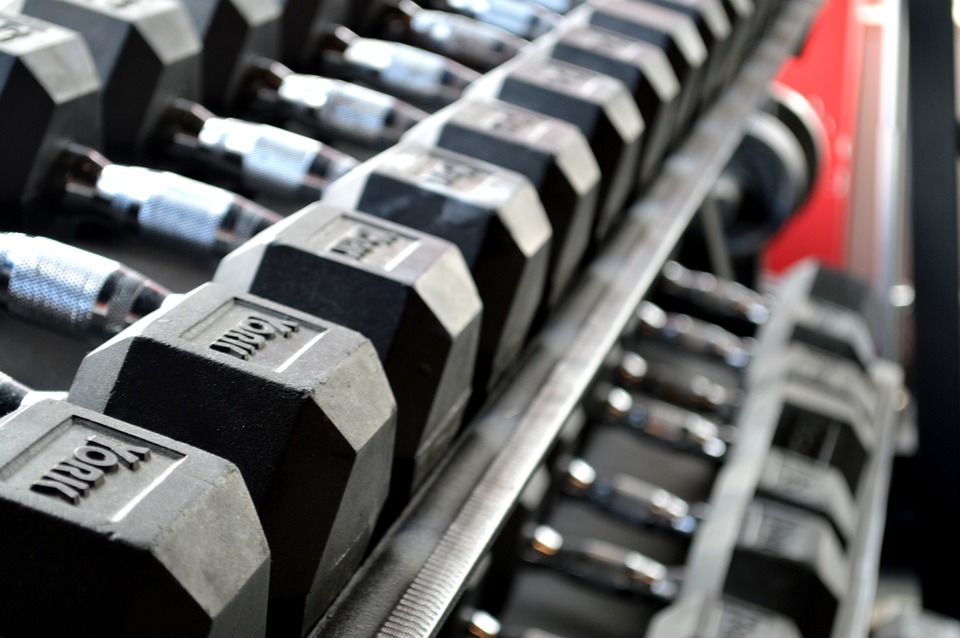10 Essential Foods for a Fitness Kitchen
Introduction
Maintaining a healthy and fit lifestyle requires not just regular exercise but also a well-balanced diet. The food choices we make significantly impact our fitness goals. By stocking up on the right foods, you can create a fitness kitchen that supports your active lifestyle. Here are 10 essential foods that should be a part of your fitness kitchen.
1. Lean Protein Sources
Lean protein is an essential macronutrient that promotes muscle growth and aids in recovery. Include foods such as chicken breast, turkey, fish, tofu, Greek yogurt, and eggs. These protein sources are low in fat and provide necessary amino acids.
2. Fruits and Vegetables
Fruits and vegetables are rich in vitamins, minerals, and antioxidants. They improve digestion, provide energy, and reduce the risk of chronic diseases. Fill your kitchen with colorful options like berries, leafy greens, citrus fruits, broccoli, carrots, and bell peppers.
3. Whole Grains
Whole grains are an excellent source of complex carbohydrates, fiber, and essential nutrients. They provide sustained energy levels and aid in recovery. Opt for foods like brown rice, quinoa, oats, whole wheat bread, and whole grain pasta.
4. Healthy Fats
Incorporate healthy fats into your fitness kitchen to support brain function and nourish your body. Avocado, nuts, seeds, olive oil, and fatty fish like salmon are excellent choices. These fats help keep you fuller for longer and aid in nutrient absorption.
5. Legumes and Pulses
Legumes and pulses are rich in protein, fiber, and essential minerals. They provide a vegetarian or vegan alternative to animal protein sources. Include lentils, chickpeas, black beans, and kidney beans in your kitchen to add versatility to your meals.
6. Low-Fat Dairy or Dairy Alternatives
Low-fat dairy products are rich in calcium and protein. They aid in muscle repair and strengthen bones. If you are lactose intolerant or following a vegan diet, opt for dairy alternatives like almond milk, soy milk, or oat milk that are fortified with calcium.
7. Herbs and Spices
Add flavor to your dishes without compromising nutritional value by incorporating a wide variety of herbs and spices. They enhance taste, reduce the need for excessive salt, and provide antioxidants. Stock up on herbs like basil, rosemary, cilantro, and spices like turmeric, cinnamon, and cayenne pepper.
8. Healthy Snacks
Snacking can be a part of a healthy diet if done right. Keep your fitness kitchen well-stocked with healthy snack options such as nuts, seeds, dried fruits, protein bars, and rice cakes. These snacks will curb your hunger in between meals while providing essential nutrients.
9. Hydration Essentials
Staying hydrated is crucial for overall health and fitness. Keep a variety of hydration essentials in your fitness kitchen, including water bottles, herbal tea, and naturally flavored water. Avoid sugary beverages and opt for healthier alternatives.
10. Smoothie Ingredients
Smoothies are an easy and convenient way to pack in nutrients. Have a selection of smoothie ingredients in your kitchen, such as frozen fruits, protein powder, spinach, almond milk, and nut butter. These ingredients will help you create delicious and nutritious smoothies to fuel your workouts.
FAQs
1. Can I still indulge in treats while maintaining a fitness kitchen?
Occasionally indulging in treats is perfectly fine, as long as you maintain a balance and moderation. Opt for healthier alternatives like dark chocolate or homemade protein snacks to satisfy your cravings.
2. Should I avoid carbohydrates entirely to stay fit?
No, carbohydrates are an essential energy source for your body. Choose complex carbohydrates like whole grains and incorporate them into your meals in moderation.
3. Do I need to count calories to maintain a fitness kitchen?
Counting calories isn’t necessary for everyone. Focus on eating whole, unprocessed foods and listen to your body’s hunger and fullness cues. Prioritize nutritious foods while maintaining a balanced and varied diet.
4. How can I meal prep effectively for my fitness kitchen?
Meal prepping can be a great way to stay on track with your fitness goals. Dedicate some time each week to plan and prepare your meals in advance. This will help you make healthier choices and avoid relying on unhealthy convenience foods.
5. Can I consume supplements instead of whole foods in my fitness kitchen?
Supplements should not replace a well-rounded diet. Whole foods provide a wide range of nutrients and are the best way to obtain them. However, if you feel you’re lacking certain nutrients, consult a healthcare professional who can guide you on appropriate supplementation.
Conclusion
Creating a fitness kitchen doesn’t have to be complicated. By stocking up on these essential foods, you will have a solid foundation to support your active lifestyle. Remember to focus on whole, unprocessed foods and make your fitness kitchen a place that nourishes your body and promotes overall health and wellbeing.




